US hopes India won't trigger 'regional conflict'
EU urges Delhi and Islamabad to 'exercise restraint'
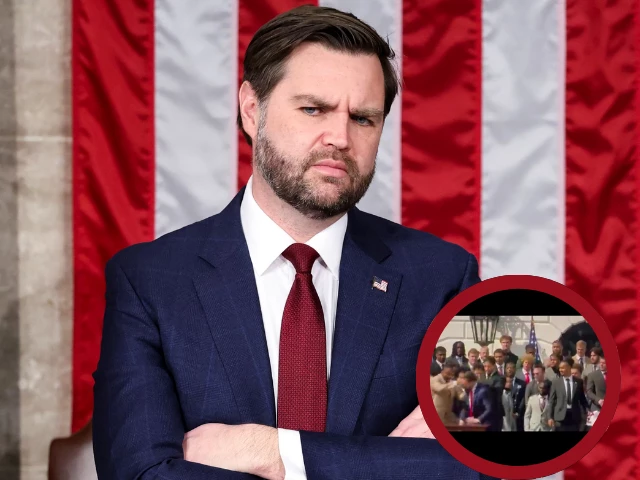
Amid unabated warmongering from Indian politicians in step with the rampant war hysteria stirred up by their media following the Pahalgam incident, the US vice president said on Thursday Washington hoped India's response "does not lead to a broader regional conflict."
JD Vance – who was touring India when the Pahalgam killings took place – made the statement in a TV interview days after Prime Minister Narendra Modi reportedly told his country's armed forces that they had the "complete operational freedom to decide on the mode, targets and timing of our response."
However, the Pakistani leadership has warned of retaliation to any military escalation from the Indian side with army chief Gen Asim Munir saying: "Let there be no ambiguity: any military misadventure by India will be met with a swift, resolute, and notch-up response."
New Delhi appears to have failed to win the international community to its side as it sought to implicate Pakistan in the Pahalgam incident with offering a shred of evidence. Vance's statement has angered the India media with Times of India writing "US backstabs India, shields Pakistan."
"Our hope here is that India responds to this terrorist attack in a way that doesn't lead to a broader regional conflict," the US vice president said in an interview on Fox News' "Special Report with Bret Baier" show. "And we hope, frankly, that Pakistan, to the extent that they're responsible, cooperates with India to make sure that the terrorists sometimes operating in their territory are hunted down and dealt with," Vance added.
Pakistan has already offered a "neutral, transparent, and credible investigation" into what has happened in the Baisaran meadows of Pahalgam on April 22. At the same time, Islamabad has also denounced India for a "pattern of exploitation" by leveling "baseless allegations and false accusations without credible investigation or verifiable evidence."
Earlier, Washington had urged India and Pakistan to work with each other to de-escalate tensions and arrive at a "responsible solution." The US State Department has said it was in touch with the nuclear-armed Asian neighbours at multiple levels and Secretary of State Marco Rubio held calls on Wednesday with Indian Foreign Minister Jaishankar and Pakistani Prime Minister Shehbaz Sharif.
European Union
The international community has stepped up diplomatic efforts to deescalate the situation. EU High Representative for Foreign Policy and Security Kaja Kallas telephoned Foreign Minister Ishaq Dar and Indian External Affairs Minister Jaishankar to discuss the situation.
"I urge both sides to show restraint and pursue dialogue to ease the situation. Escalation helps no one," the EU foreign policy chief wrote on X. "I spoke to both Dr S Jaishankar and Ishaq Dar today (Friday) to convey these messages."
A statement issued by the Foreign Office said Foreign Minister Dar apprised the EU foreign policy chief of recent regional developments, categorically rejecting India's baseless accusations and inflammatory propaganda. He expressed strong concern over India's decision to hold in abeyance the Indus Waters Treatya clear violation of the treaty obligations and international law.
Reaffirming Pakistan's commitment to peace and regional stability, Dar reiterated Pakistan's proposal for an independent and transparent investigation. Kallas stressed that both sides should exercise restraint and underscored the importance of dialogue to maintain peace and stability in the region.
Diplomatic push
Meanwhile, Prime Minister Shehbaz Sharif also reached out to key regional allies to enlist their support for defusing the situation. He held separate meetings with the ambassadors of Saudi Arabia, the UAE and Kuwait and discussed the rapidly evolving regional situation, especially in the wake of the Pahalgam incident.
He reaffirmed Islamabad's principled stance against terrorism. "Pakistan has made tremendous sacrifices in the fight against terrorism and condemns it in all its forms," he said. He warned that India's attempts to escalate tensions aim to distract Pakistan from its domestic counter-terrorism and economic recovery efforts.
The prime minister highlighted that his government remains focused on stabilising the economy with the support of friendly nations, and India's aggressive posture was both unjustified and detrimental to regional peace. He urged brotherly nations to use their influence with India to help ensure peace and stability in South Asia.
The ambassadors of Saudi Arabia, the UAE, and Kuwait expressed support for Pakistan's position and reiterated their commitment to promoting peace and security in the region.
Meanwhile, Foreign Minister Dar called up his Panamanian counterpart Javier Eduardo Martinze-Acha Vasquez to brief him on India's "inflammatory propaganda and its illegal unilateral actions against Pakistan," including New Delhi's suspension of the Indus Waters Treaty.
FM Vasquez called for restraint from both sides and reaffirmed, alongside Dar, their shared commitment to global peace as non-permanent members of the UN Security Council.
Dar also held a similar discussion with Danish Foreign Minister Lars Løkke Rasmussen, informing him of the measures taken by Pakistan's National Security Committee in response to India's actions. He reiterated Pakistan's determination to protect its sovereignty and vital interests while contributing to regional stability.
FM Rasmussen stressed the importance of restraint from both parties. "The two leaders agreed to maintain close contact on regional and global developments, particularly at the UNSC, as non-permanent members," the Foreign Office said.
(With additional input from Agencies)

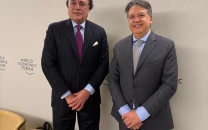




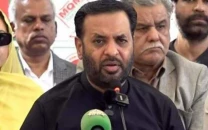
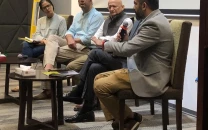










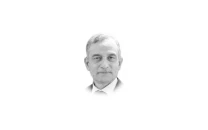
COMMENTS
Comments are moderated and generally will be posted if they are on-topic and not abusive.
For more information, please see our Comments FAQ